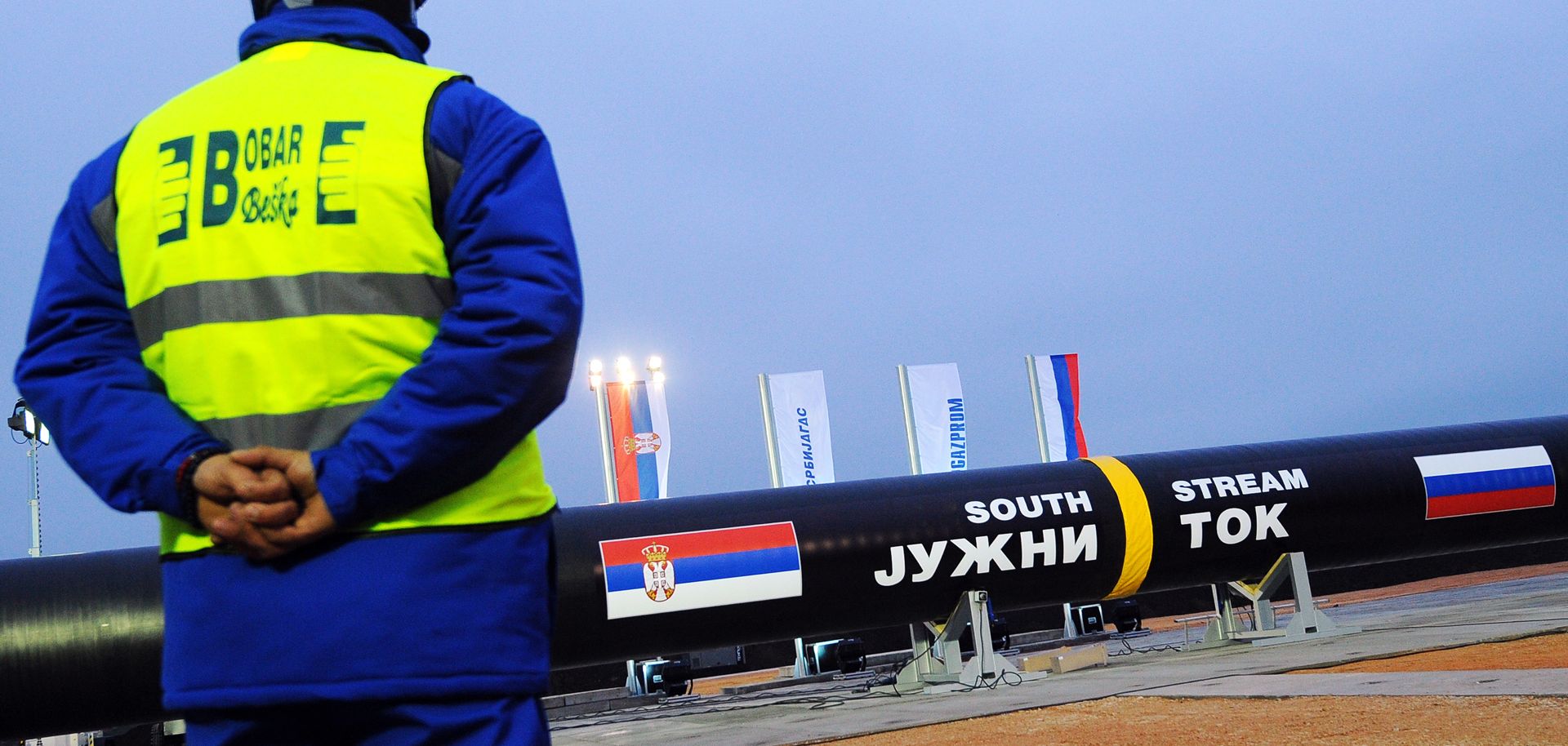ASSESSMENTS
Russia's South Stream Decision Changes Regional Dynamics
Dec 4, 2014 | 10:30 GMT

(ANDREJ ISAKOVIC/AFP/Getty Images)
Summary
The fallout from Russia's decision to abandon its ambitious South Stream pipeline deal continued Dec. 3, as Italian energy services firm Saipem announced that it would lose almost $2 billion because of Moscow's move. On Dec. 2, Bulgarian President Rosen Plevneliev called for the South Stream project's European partners to have a say in its future. The head of Serbia's Gas Association, Vojislav Vuletic, said his country is still interested in South Stream, while Hungarian Foreign Minister Peter Szijjarto said his country will have to look for alternative natural gas sources to replace South Stream supplies.
Russian President Vladimir Putin announced the decision to abandon the pipeline deal on Dec. 1, while visiting Turkey. Putin publicly blamed the European Commission's opposition to the planned pipeline, though the project faced other growing constraints (mainly financing). At the same time, Putin announced that Russia would instead build a pipeline similar to South Stream but ending in Turkey, which could then become a hub for Russia's natural gas exports. The decision changes not only the dynamics of energy in the region, but also many relationships in Europe, Turkey and Russia.
Subscribe Now
SubscribeAlready have an account?
